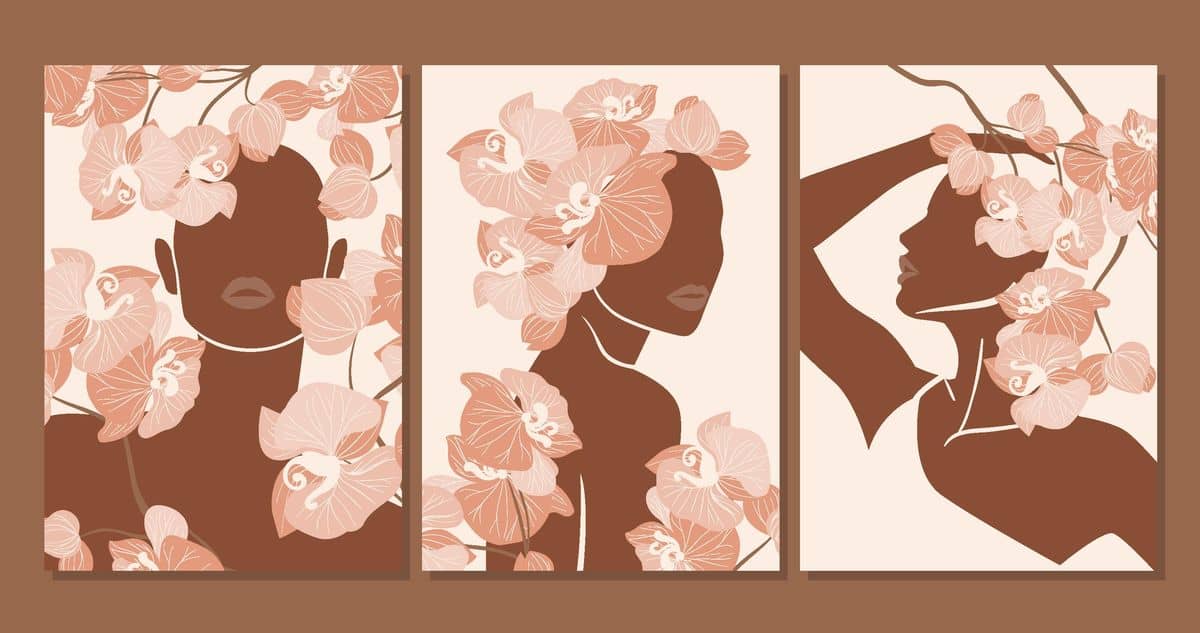Have you ever found it difficult to distinguish self-love from self-respect? I’m sure you’ve heard these terms, but may not exactly know the difference between the two.
I thought that self-love meant always feeling great about myself, and self-respect meant needing to constantly sacrifice my needs for others.
Boy was I wrong, and it drained a lot of energy to misinterpret these terms!
After years of self-exploration and guidance, I now have a clear understanding of what each means.
So let’s break down the difference between self-love vs self-respect so you can learn how to integrate these two important tools into your life and increase your overall wellness.
- Self-love is acceptance and caring for yourself, while self-respect focuses on maintaining personal boundaries and value-driven decisions.
- Balancing self-love and self-respect simultaneously leads to improved self-confidence, resilience, better relationships, and your overall well-being.
- Cultivating a balance between self-love and self-respect involves learning when to say yes or no, celebrating successes and practicing forgiveness, and being thankful for what you have.
Table of Contents
What Does Self-Love Mean?
Self-love to me is valuing and accepting the aspects of yourself that you may not particularly like, while simultaneously striving to modify them if it is your personal wish.
I believe that’s the important condition: altering something about yourself solely for your own sake is a fundamental aspect of self-love.
You can be driven by self-improvement, embracing challenges, overcoming obstacles, and so on. Conversely, changing something about yourself for the sake of others seems contradictory because you prioritize the opinions of others over your own emotions and aspirations.
What Is Self-Respect?
Self-respect refers to the sense of worth and value that you place on yourself. You know that you’re a valuable person that deserves basic human rights, love, access to basic resources, and so much more.
It helps you to identify actions, needs, and boundaries, so you can communicate them to others as well as reinforce them for yourself.
In a way, self-respect is about having a personal standard for yourself.
Being critical of yourself or thinking that you’re better than others isn’t helpful when figuring out how to respect yourself.
Instead, self-respect is about taking time to review your life and decide what adjustments are needed to reach a value-driven lifestyle.
Respect, philosophically speaking, is a type of behavior. And just like any other behavior, it turns into an effortless habit with consistency and practice.
Self-Love vs Self-Respect: What Are the Key Differences?

Here are four key differences to consider:
Focus on Acceptance vs. Focus on Boundaries
Self-love is the practice of accepting yourself for who you are, as well as where you’re at. On the other hand, self-respect deals with focusing on personal boundaries.
We don’t try to change anything when we engage in acceptance, the priority is to embrace ourselves compassionately.
And when we focus on boundaries, we don’t tolerate mistreatment from ourselves or others.
Internal vs. External Validation
Internal validation is a requirement of self-love. Since self-love is about standing by ourselves no matter what anyone else says, it’s important to go inward with practices such as journaling or meditation to discover and validate how we feel.
When we’re seeking self-respect, the focus is primarily on external validation. Although we can’t make anyone else validate us or agree with our perspective, we can set an expectation in our social lives that we are supported in certain ways that make us feel respected.
Care vs. Respect
Loving yourself is all about taking care of our mental, physical, emotional, and spiritual needs. Where caring for yourself or putting yourself first may look like you’re being selfish but you’re actually making space for the things you love to restore you after a tough patch.
In contrast, self-respect is about making values-based decisions that may not always bring joy or relaxation.
For example, you may choose to spend an extra hour working on a home decor project even though you’d rather throw in the towel and head to bed.
In this case, you choose to go the extra mile because it aligns with your values of having a beautiful home that you and your loved ones can enjoy.
Relationship With Oneself vs. Relationship With Others
Relationships are key to self-care, and there’s a slight difference in focus when it comes to self-love vs self-respect.
When it comes to self-love, we’re working on a relationship with ourselves. That’s right, you’re never truly alone, and always dialoging with yourself!
So self-love goals may include talking kindly to yourself, giving yourself permission to make mistakes, and dreaming up big juicy goals and aspirations for your life.
Self-respect is more related to our relationship with others. Some goals in this realm may include standing up for yourself in conversations, learning to say no without guilt or explanation, and being conscious of who you choose to let into your life.
The Importance of Both Self-Love and Self-Respect

Self-love and self-respect are important for happiness, and their benefits are multiplied when they’re tackled simultaneously!
On the other side of things, one can be hard to achieve when the other is out of balance.
For example, if you’re lacking in the self-love department, you may find yourself being short, snippy, and critical of others. This usually happens because you’re used to withholding love from yourself, and therefore struggle with giving it freely to others.
And the consequence of lacking self-love while having self-respect may result in feeling like you’re not consenting to your own life.
You may do things for others based on their needs while ignoring your own or even engaging in entire relationships that are unhealthy for you.
When these two forms of self-care are cultivated simultaneously, it leads to lifelong benefits, including:
- Improved self-confidence
- Resilience in challenging times
- Better relationships with others as well as fewer conflicts
- Increased physical health and well-being
- Improved-self confidence
How to Cultivate a Healthy Balance Between Self-Love and Self-Respect

It’s time to get started and create a harmonious balance between these two forms of wellness!
Here are three tips for cultivating self-love and self-respect simultaneously:
Use a Healthy Balance of “Yes” and “No”
We can’t always say yes, and we can’t always say no, so learning when these two terms are appropriate in your life is very helpful when it comes to striking a balance.
You’ll need to reflect on your personal values and desired outcomes in order to decide when it’s best to accept or turn down requests. What do you want more of out of your life? What do you want less of?
Write these answers down so when someone makes a request of you, you’ll have a solid understanding of your capacity and interest level.
And don’t forget that it’s ok to change your mind! Sometimes we say yes to things that we don’t really have the energy to do, and it’s perfectly fine to let others know that we’ve decided to go in another direction.
In the long term, this helps us to actually serve others better and more authentically, even though it may be hard at the moment to let someone down.
Celebrate Successes and Practice Forgiveness
When cultivating self-love and self-respect, you need to be your own biggest cheerleader. This means taking it easy on yourself when it’s hard and enjoying the wins when you make it there.
Even small personal wins are incredibly important to your overall progress. So find a few small (and healthy) ways that you can regularly celebrate or reward yourself when you’re pleased with your efforts.
And when you don’t meet your personal expectations, it’s equally as important to support, validate, and respect yourself while you’re down. Anything you identify as a “failure” doesn’t mean that you’re a failure as a person.
In these challenging moments, talk to yourself like you would with a loved one or a small child that doesn’t know any better.

Practice Gratitude
If there’s a single practice that I could recommend to support both your self-love and self-respect journey, it would be to live a life full of gratitude.
Gratitude is an interesting mindset that allows you to hold more compassion and appreciation for anything you focus on.
So when you feel out of balance with self-love, do a brief meditation or sit in silence and focus on how grateful you are for yourself. Your heart that beats every day, your smile the way you handled a challenge in your life, the options are limitless. Just find something to thank yourself for and shed the light of gratitude on.
If you’re feeling like you’re lacking self-respect, do the same thing but shift your focus to all of the hard work and dedication you put into achieving something.
Think of the people who stand by your side, the commitment and consistency you bring, and express gratitude and appreciation for your values, which hold you to a standard of excellence and authenticity.
How Much Do You Love and Respect Yourself?
While the balance between self-love and self-respect can seem messy or even challenging at the beginning, it’s worth it when your efforts bring you a healthy and happy life.
Remember that love is an abundant force, and you can apply it to multiple areas of your life.
With time, you’ll bloom into the confident and beautiful person that you know is there, deep down inside!
Frequently Asked Questions
How can I tell if I have healthy self-love and self-respect?
You have a healthy sense of self-love and self-respect when you have a positive relationship with both yourself and others around you. This indicates that you’ve placed effective boundaries and taken time to honor your personal needs.
Is it possible to have one without the other?
It’s possible to have one without the other, but it’s not sustainable. Focus on cultivating self-love and self-respect at the same time to experience their full benefits.
What are some common signs of lacking self-love or self-respect?
Some common signs of a lack of self-love or self-respect include negative self-talk, ambiguous boundaries, low self-esteem, and an overall misalignment with your values and beliefs.
How can I cultivate self-love and self-respect if I struggle with low self-esteem?
If self-esteem issues are preventing your growth, it’s time to ask for help. Reach out to a trusted loved one or a wellness professional to help rebuild your esteem.
Can someone have too much self-love or self-respect?
If you’re disregarding the feelings or needs of others, you may be manifesting narcissism or arrogance. If you can balance your needs with those of others, you know you’re doing well.


